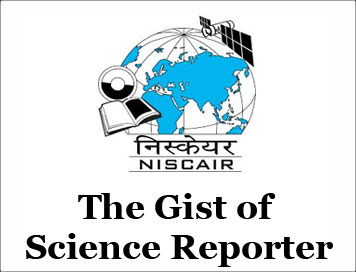(HOT) UPSC Current Affairs 2025 PDF
NEW! The Gist (JAN-2026) | E-BOOKS
(GIST OF SCIENCE REPORTER) Coordinated Lunar Time (LTC)
(GIST OF SCIENCE REPORTER) Coordinated Lunar Time (LTC)
(JUNE-2024)
Coordinated Lunar Time (LTC)
-
NASA develop Coordinated Lunar Time (LTC)by December 2026, in collaboration with international space agencies involved in the Artemis Accords.
Key Details
-
LTC will be the official time standard for the Moon and its surrounding space (cislunar space).
-
Unlike Earth, which uses Coordinated Universal Time (UTC) based on our planet’s rotation, the Moon’s slower rotation and weaker gravity necessitate a separate timekeeping system LTC will be crucial for various aspects of lunar exploration.
-
Streamlining Communication: With multiple space agencies and commercial entities operating on the Moon, a common time reference is essential for clear communication between missions and Earth-based stations.
-
Enhanced Navigation: Precise timekeeping is vital for accurate navigation on the lunar surface. LTC will allow spacecrafts to synchronize with each other for efficient operations.
-
Facilitating Logistics: As commercial activities pick up on the Moon, LTC will ensure smooth transactions and logistical planning based on a unified time framework.
Challenges
-
The Moon’s uneven gravitational pull and varying rotation speeds across its surface complicate matters.
-
Additionally, clocks on the Moon would naturally run slightly faster compared to those on Earth due to the weaker gravity, according to the theory of special relativity.
Suggestions
-
International Consensus: NASA, along with other space agencies, needs to reach a common agreement on the technical specifications of LTC, taking into account the Moon’s unique gravitational and rotational characteristics.
-
Deployment of Lunar Clocks: Setting up a network of atomic clocks on the lunar surface will be necessary to establish a reliable and accurate time reference.
-
Establishing Conversion Mechanisms: A system for converting between LTC and UTC will be essential for smooth communication and data exchange between lunar and Earth-based operations.
-
Standardization for Future Missions: LTC should be adopted as the standard timekeeping system for all future lunar missions, regardless of the participating agency or country.
-
Public Awareness: Raising public awareness about LTC will help generate interest and understanding as lunar exploration progresses.
CLICK HERE TO DOWNLOAD FULL PDF
CLICK HERE TO DOWNLOAD UPSC E-BOOKS
Study Material for UPSC General Studies Pre Cum Mains
Get The Gist 1 Year Subscription Online
Click Here to Download More Free Sample Material
<<Go Back To Main Page
Courtesy: Science Reporter



